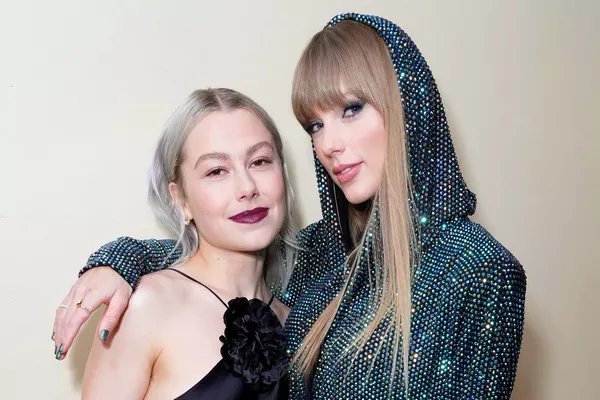In today’s world, the concept of celebrity has undergone a significant transformation. Gone are the days when talent was the sole criterion for achieving celebrity status. The rise of reality TV, social media, and influencer culture has blurred the lines between talent and fame. This article delves into the question: “Do you think a person needs to be talented to be a celebrity?” We will explore the changing dynamics of fame, the role of talent, and the various paths individuals take to achieve celebrity status.
The Evolving Landscape of Celebrity
The definition of celebrity has evolved over the years. Traditionally, celebrities were individuals who gained recognition and fame for their exceptional skills or talents. They were actors, musicians, athletes, or artists who had honed their craft through years of hard work and dedication. Talent was the driving force behind their celebrity status, and their fame was often a byproduct of their excellence in their respective fields.
However, with the advent of the internet and social media, the landscape of celebrity has shifted dramatically. Today, anyone with a smartphone and an internet connection has the potential to become a celebrity. Social media platforms like Instagram, TikTok, and YouTube have given rise to a new breed of celebrities known as “influencers.” These individuals often gain fame not because of their exceptional talent, but rather their ability to connect with and amass a large following online.
In this context, the question arises: “Do you think a person needs to be talented to be a celebrity?” The answer, in today’s world, is far from straightforward.
The Role of Talent in Traditional Celebrity
In the world of traditional celebrity, talent has always been a crucial factor. Actors, for example, must possess acting skills, musicians must be able to sing or play instruments proficiently, and athletes need to excel in their respective sports. These talents are what set traditional celebrities apart from the average person.
Talent serves as the foundation upon which traditional celebrities build their careers. It is the driving force that enables them to excel in their chosen fields and captivate audiences. Without talent, achieving celebrity status in traditional entertainment industries is exceptionally challenging.
Take, for example, the world of cinema. Acclaimed actors such as Meryl Streep and Leonardo DiCaprio have reached the pinnacle of their profession due to their exceptional acting abilities. Their talent allows them to inhabit diverse roles and deliver performances that resonate with audiences worldwide. Their celebrity status is, in large part, a testament to their talent.
Similarly, musicians like Beyoncé and Ed Sheeran have risen to stardom through their musical prowess. Their ability to create captivating music, write compelling lyrics, and deliver electrifying live performances showcases their undeniable talent. In the traditional entertainment industry, talent remains a non-negotiable requirement for celebrity status.
The Emergence of Social Media Influencers
While traditional celebrities rely on their talents to achieve fame, the rise of social media has introduced a new type of celebrity: the influencer. Influencers are individuals who have amassed large followings on platforms like Instagram, YouTube, and TikTok. They often gain fame for sharing aspects of their daily lives, including fashion, beauty, travel, or simply their personalities.
In the realm of social media, the role of talent is more nuanced. While some influencers do possess specific skills or talents that contribute to their popularity, many gain fame primarily through relatability and charisma. For instance, a beauty influencer may not be a professionally trained makeup artist, but they connect with their audience through engaging tutorials and personal anecdotes.
This raises the question of whether talent is a prerequisite for becoming a social media influencer. The answer varies widely depending on the niche and the individual. In some cases, influencers leverage their expertise or talents, such as cooking, fitness, or photography, to build their following. In other cases, charisma and relatability are the primary drivers of success.
The Power of Relatability and Charisma
In the world of social media, relatability and charisma often play a more significant role than traditional talent. Many influencers become relatable figures by sharing their everyday experiences, struggles, and triumphs with their followers. This relatability fosters a sense of connection and authenticity that resonates with audiences.
Charisma is another essential attribute for social media influencers. A charismatic influencer has the ability to engage and entertain their audience, making them feel like a friend rather than a distant celebrity. Charisma is not a traditional talent in the sense of singing or actraits to the ability to create compelling narratives for an audience.
The Social Media Paradox
Social media platforms have given rise to countless influencers and micro-celebrities who may not possess traditional talents but have built substantial followings through their online presence. This phenomenon has led to what some consider a paradox in celebrity culture: the rise of individuals who are famous for being famous.
In this context, the question of whether a person needs to be talented to be a celebrity becomes even more complex. On one hand, many social media influencers have honed specific skills related to content creation, such as photography, videography, or editing. On the other hand, the primary driver of their fame often lies in their relatability, accessibility, and ability to engage with their audience.
The paradox lies in the fact that while these individuals may not have traditional talents like acting or singing, they have developed a set of digital skills that are highly relevant in the modern world. They excel at building personal brands, curating content, and connecting with their followers in ways that traditional celebrities may not.
The Impact on Aspiring Talent
For those who aspire to achieve celebrity status, the changing landscape of fame presents both opportunities and challenges. On one hand, the digital age has made it possible for individuals to gain recognition and build careers in various fields without the need for traditional gatekeepers. Aspiring musicians, artists, writers, and entrepreneurs can leverage social media and digital platforms to showcase their work and connect directly with their audience.
However, the question of whether talent is necessary for celebrity status remains relevant. While social media has lowered barriers to entry, it has also increased competition. Aspiring talent must find ways to stand out in a crowded digital landscape, whether through their exceptional skills, compelling stories, or unique personalities.
Moreover, the rise of influencers and reality TV celebrities has led to a perception that fame can be achieved quickly and without a substantial investment in skill development or expertise. This perception can discourage individuals from pursuing mastery in their chosen fields, leading to a potential devaluation of traditional talent.
The Responsibility of Celebrity
As the definition of celebrity continues to evolve, so does the responsibility that comes with it. Traditional celebrities often serve as role models and influencers in their respective industries, using their platform to advocate for causes they believe in or inspire others to pursue their passions.
In the case of influencers and reality TV stars, the responsibility may be less clear-cut. Some leverage their fame for positive purposes, such as promoting social issues, while others prioritize self-promotion and personal gain. The question of whether these individuals have a responsibility to use their platform for the greater good remains a subject of debate.
Ultimately, the responsibility of a celebrity, regardless of how they achieved fame, lies in the impact they have on society and the messages they convey to their audience. Whether through traditional talent or digital charisma, celebrities have the power to influence public opinion and shape cultural norms.
Conclusion: Talent, Personality, and the Changing Face of Celebrity
In conclusion, the question of whether a person needs to be talented to be a celebrity is far from black and white. The concept of celebrity has evolved, with talent remaining essential in traditional entertainment fields while personality and relatability gain prominence in the digital age.
Talent and personality often intersect, and many celebrities leverage a combination of both to achieve and maintain their fame. The rise of social media influencers and reality TV stars has introduced new pathways to celebrity status, challenging traditional notions of talent.
Aspiring individuals must navigate this evolving landscape, recognizing that talent, charisma, and authenticity can all play roles in achieving celebrity status. Ultimately, the responsibility of a celebrity, regardless of how they attained fame, is to use their platform wisely and ethically, recognizing the influence they wield over society.
So, do you think a person needs to be talented to be a celebrity? The answer may depend on the era, the medium, and the individual in question. In today’s diverse and ever-changing world of celebrity, talent is just one piece of the puzzle, and the journey to fame can take many different paths.

























